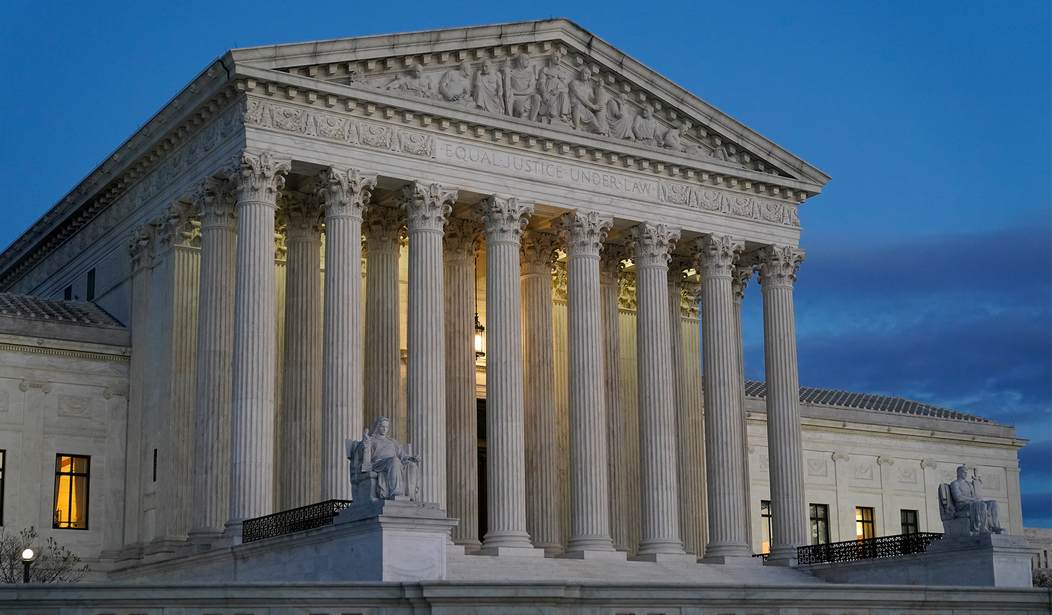The U.S. Supreme Court will consider in December two appeals which on the surface are related only in that both are the progeny of Janus v. AFSCME, the landmark 2018 ruling that affirmed the right of government employees to decline union membership, dues and/or fees and still keep their jobs.
If the court decides on Dec. 1 to hear both cases and side with the complainants, however, it would not only put teeth into efforts to enforce what even Janus’ legion of critics grudgingly acknowledge it does, but also address what the ruling is actually supposed to do.
In one case, the state of Alaska is asking the justices to throw out a ruling by the Alaska State Supreme Court and reinstate a regulation intended to ensure public-sector union members are fully informed about the rights they’re waiving and require their permission be obtained before dues can be deducted from their wages.
In the other, the Freedom Foundation – a national watchdog organization that helps free public employees from union domination – appeals five cases from Washington, Oregon and California in which the employee’s signature was clearly forged onto the paperwork authorizing dues while neither the state, the union nor the lower-court judges deciding the case discerned any constitutional violation.
On paper, government employees have been able to opt out of union participation since 1977, when the court recognized in Abood v. Detroit Board of Education that forcing a worker to join a union that, in turn, uses his or her dues money to fund political candidates and causes with which they disagree is a violation of the worker’s First Amendment right to free speech.
But rather than simply freeing the workers outright, Abood imposed a compromise under which workers who left the union could still be required to pay a so-called “agency fee” in lieu of dues to compensate the union for negotiating a collective bargaining agreement applicable even to non-members.
Recommended
Janus invalidated Abood, however, by recognizing that, when employees are paid out of the public treasury, everything a union does – even collective bargaining – is inherently political speech. Thus, it is unconstitutional to compel a government employee to pay for any of it.
But Justice Samuel Alito, who authored the majority opinion in Janus, went even further.
Anticipating that unions would respond by making the opt-out process as burdensome as possible for disaffected members, Alito’s majority ruling included wording in the ruling noting that workers who choose to join and pay dues to a union in the wake of Janus are effectively waiving their First Amendment right not to.
And since free Americans cannot waive rights they don’t know they have, Alito further declared that:
“Neither an agency fee nor any other payment to the union may be deducted from a nonmember’s wages, nor may any other attempt be made to collect such a payment, unless the employee affirmatively consents to pay.”
Both cases the Supreme Court has been asked to consider next month would circumvent the unions’ schemes to make opting out more difficult by shifting the burden of proof.
Rather than forcing workers to jump through an endless procession of hoops to show they’re entitled to leave the union, the onus would instead be on the union to prove it has the permission of every member before it can take a dime of their money.
It certainly can’t violate the U.S. Constitution for Alaska revenue officials to hold the state’s public sector unions to precisely the standard enunciated with crystal clarity in the Janus ruling. Nor can unions on the west coast rely on forged signatures to continue taking money they haven’t been authorized to take, no matter who ultimately falsified the documents.
It’s understandable the Supreme Court would want to wait a few years before revisiting one of its most consequential, and controversial, rulings.
But in the case of Janus, the court’s restraint has been interpreted as indecisiveness.
Whatever their position on the merits, every member of the U.S. Supreme Court should be outraged at the undisguised contempt being demonstrated by the unions and their allies on the lower courts.
The word of the Supreme Court is, literally, law. It’s time for the Court to show the unions and lower courts what that means.
Eric Stahlfeld is the Chief Legal Counsel at the Freedom Foundation. www.FreedomFoundation.com

























Join the conversation as a VIP Member